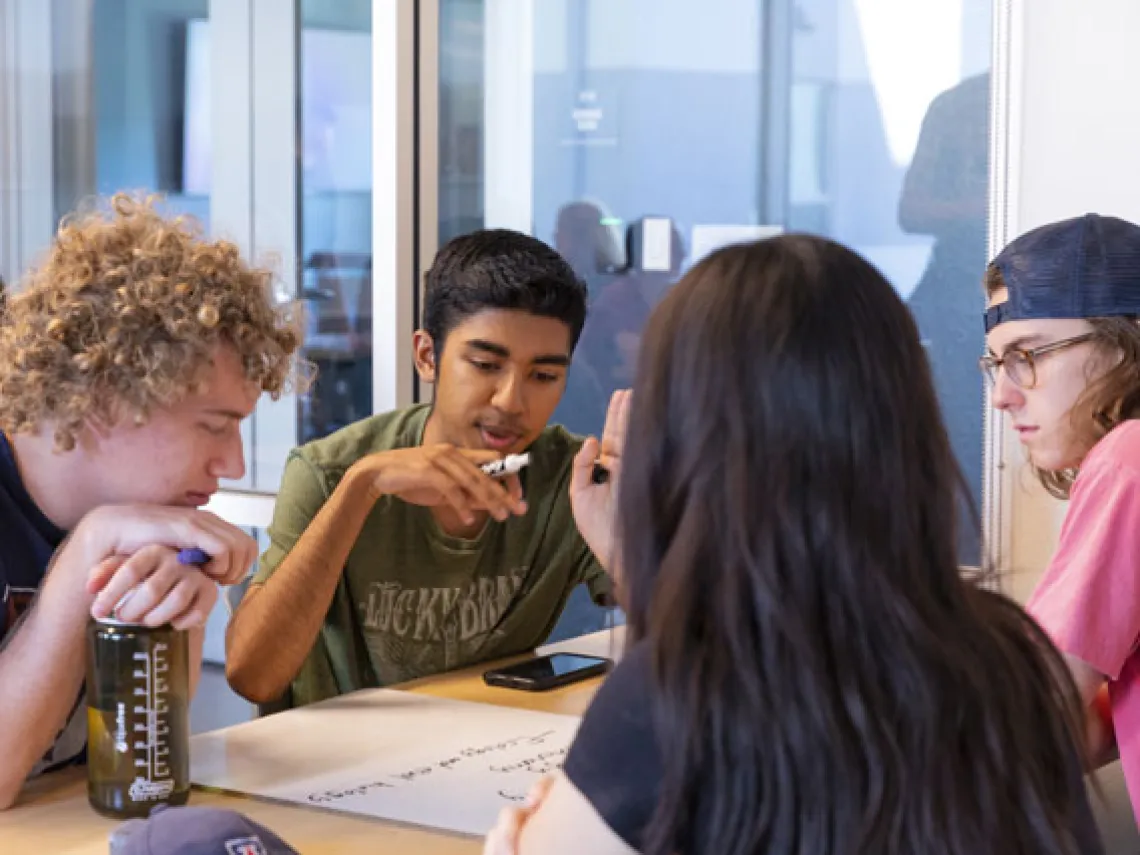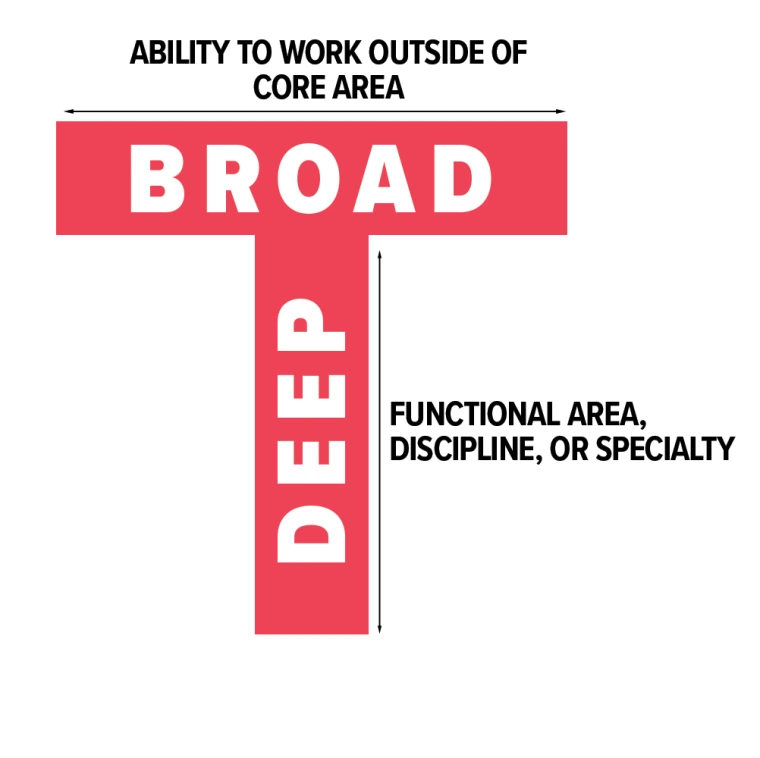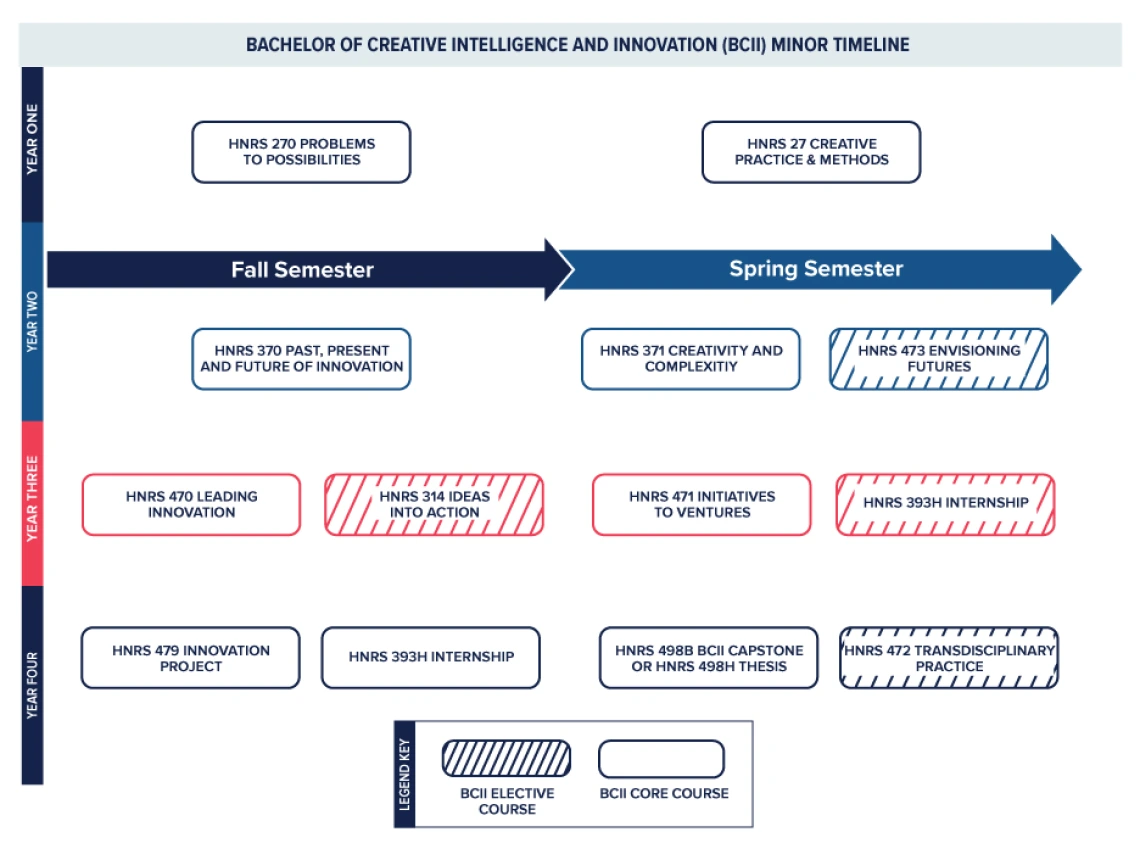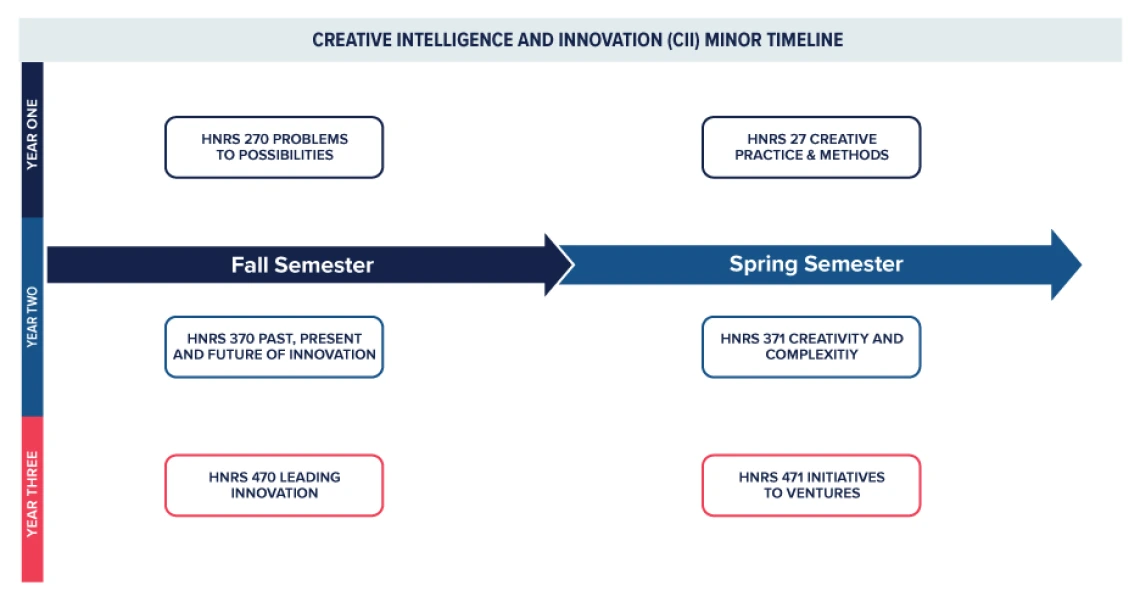
Create and Innovate
Franke Honors students can pair the Bachelor of Creative Intelligence and innovation (BCII) degree or CII minor with any other major from the University of Arizona and explore transdisciplinary perspectives alongside diverse faculty from multiple disciplines.
The BCII curriculum consists of several core courses, an internship, and a capstone project that aligns with the existing Honors Thesis requirement. Courses are taught in a way that empowers you to innovate and experience rather than observe and absorb; they favor hackathons, think tanks, and creative labs over lectures and tutorials.
Students who are interested in the coursework but don't have room for another degree in their plans can complete the Creative Intelligence and Innovation Minor (CII).
BCII Courses
Think the BCII might be the right fit for you? Take Problems to Possibilities, the first course in the major and minor, before you declare to find out.
Already started on your BCII journey? See what's on offer next semester.
Future-proof Your Career
Each course in the BCII involves working with an industry or community partner on a challenge question, providing opportunities to connect your skills and knowledge with real-world challenges.
The BCII is designed to prepare you for a dynamic future.
All courses in the degree are:
- Action oriented, research inspired, and impact driven
- Rooted in transdisciplinary creative problem-solving
- Driven by real-world problem centric learning in collaboration with industry, government and community partners
- Focused on social innovation and entrepreneurship
- Driven by experiential and embodied learning pedagogies

BCII and CII Timelines


HNRS 270: Problems to Possibilities
An introduction to transdisciplinarity, perspective taking, and complex problem solving, this course acts as a taster and transition into the rest of what the BCII has to offer.
HNRS 271: Creative Practice and Methods
With a focus on understanding how creative practices, processes, and methods lead to innovations, students create proposals in a collaborative environment, generate solutions, develop visual literacy in dealing with complexity, and create frameworks for critiquing proposals.
HNRS 370: The Past, Present, and Future of Innovation
Students will consider technological, sociopolitical, cultural, and economic contexts that drive innovation and apply insights to develop innovations addressing pressing societal issues.
HNRS 371: Creativity and Complexity
Drawing on systems thinking, complexity theories, and embodied experiences, students gain an understanding of the interconnectivity of the world from different disciplinary perspectives to design or support system change for social impact.
HNRS 470: Leading Innovation
Addressing the current and future leadership practices needed to mobilize people and transform organizations and systems, students explore frameworks of innovation leadership and speculate about their future professional lives.
HNRS 471: Initiatives and Ventures
Students come to this course with a problem space they would like to address and gain an understanding of the community-based elements of entrepreneurship and its role in broader social movements.
HNRS 479: Innovation Project
The culminating experience of the BCII, wherein students work in teams and embed into an organization to solve a complex challenge.
HNRS 473: Envisioning Futures
Students are introduced to different futures-thinking practices, stepping out of the status quo and considering ways to anticipate, imagine, and create innovative pathways to preferable futures.
HNRS 472: Transdisciplinary Practice
A capstone experience wherein students take a passion project and apply their BCII skillset to progress it further.
HNRS 498B: BCII Capstone
Students will reflect on their unique strengths and talents and position themselves as cutting-edge transdisciplinary practitioners within a professional ecosystem of their choice.
FAQ
You simply need to fill out this form.
Yes, you can take HNRS 270: Problems to Possibilities and HNRS 271: Creative Practice and Methods prior to officially enrolling in the degree.
Students can choose between completing the BCII capstone OR completing their Honors Thesis in BCII. If you want to graduate with Honors in your primary major, you will need to complete your Honors Thesis in that major, and complete the BCII capstone to earn your BCII degree.
For example, if you are a Communications major and double majoring in BCII, you will only graduate with Honors in Communications if you complete your Thesis in Communications.
The courses required to earn a BCII degree total 33-36 units (depending on whether or not you choose to do your honors thesis in BCII). Students will still need to take the units required for their other major and general education classes in order to graduate.
Questions about how this all works? Contact your Franke Honors Advisor.

